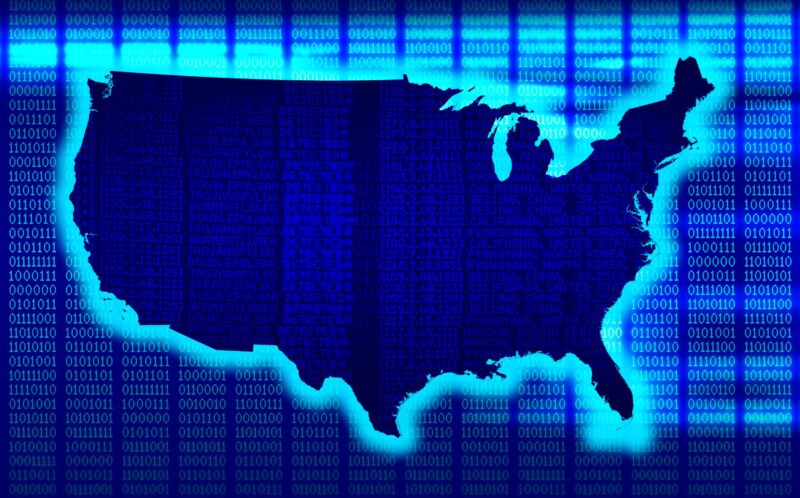
Getty Images | Matt Anderson Photography
California can keep enforcing its state net neutrality law after the Federal Communications Commission implements its own rules. The FCC could preempt future state laws if they go far beyond the national standard but said that states can “experiment” with different regulations for interconnection payments and zero-rating.
The FCC scheduled an April 25 vote on Chairwoman Jessica Rosenworcel’s proposal to restore net neutrality rules similar to the ones introduced during the Obama era and repealed under former President Trump. The FCC yesterday released the text of the pending order, which could still be changed but isn’t likely to get any major overhaul.
State-level enforcement of net neutrality rules can benefit consumers, the FCC said. The order said that “state enforcement generally supports our regulatory efforts by dedicating additional resources to monitoring and enforcement, especially at the local level, and thereby ensuring greater compliance with our requirements.”
California stepped in to regulate broadband providers after then-FCC Chairman Ajit Pai led a vote to repeal the federal rules. California beat ISPs in court, ensuring that it could enforce the state law even though Pai’s FCC attempted to preempt all state net neutrality rules.
The California law mostly mirrored the FCC’s repealed rules by prohibiting paid prioritization and blocking or throttling of lawful traffic, on both fixed and mobile networks. California went further than the FCC in regulating zero-rating by imposing a ban on paid data cap exemptions.
That means ISPs operating in California can’t exempt Internet traffic from customers’ data usage allowances in exchange for payment from a third party. In response to the state law, AT&T stopped exempting HBO Max from its mobile data caps and stopped its “sponsored data” program in which it charged other companies for similar exemptions from AT&T’s data caps.
FCC: No reason to preempt California
In the order scheduled for an April 25 vote, the FCC said the California law “appears largely to mirror or parallel our federal rules. Thus we see no reason at this time to preempt it.”
That doesn’t mean the rules are exactly the same. Instead of banning certain types of zero-rating entirely, the FCC will judge on a case-by-case basis whether any specific zero-rating program harms consumers and conflicts with the goal of preserving an open Internet. The FCC said it will evaluate sponsored-data “programs based on a totality of the circumstances, including potential benefits.”
The FCC order cautions that the agency will take a dimmer view of zero-rating in exchange for payment from a third party or zero-rating that favors an affiliated entity. But those categories will still be judged by the FCC on a case-by-case basis, whereas California bans paid data cap exemptions entirely.
Despite that difference, the FCC said it is “not persuaded on the record currently before us that the California law is incompatible with the federal rules.” The FCC also found that California’s approach to interconnection payments is compatible with the pending federal rule. Interconnection was the subject of a major controversy involving Netflix and big ISPs a decade ago.
Interconnection and zero-rating
The FCC’s new order addressed interconnection and zero-rating as follows:
As to the former, California prohibits BIAS [Broadband Internet Access Service] providers from requiring interconnection agreements “that have the purpose or effect of evading the other prohibitions” by blocking, throttling, or charging for traffic at the interconnection point. We have likewise stated in this Order that BIAS providers may not engage in interconnection practices that circumvent the prohibitions contained in the open Internet rules.
As to the latter, California restricts zero-rating when applied discriminatorily to only a subset of “Internet content, applications, services, or devices in a category” or when performed “in exchange for consideration, monetary or otherwise, from a third party.” We have likewise explained in this Order that sponsored-data programs—where a BIAS provider zero rates an edge product in exchange for consideration (monetary or otherwise) from a third party or where a BIAS provider favors an affiliate’s edge products—raise concerns under the general conduct standard.
The FCC said it found no evidence that the California law has “unduly burdened or interfered with interstate communications service.” When it comes to zero-rating and interconnection, the FCC said there is “room for states to experiment and explore their own approaches within the bounds of our overarching federal framework.”
The FCC said it will reconsider preemption of California rules if “California state enforcement authorities or state courts seek to interpret or enforce these requirements in a manner inconsistent with how we intend our rules to apply.”

















+ There are no comments
Add yours